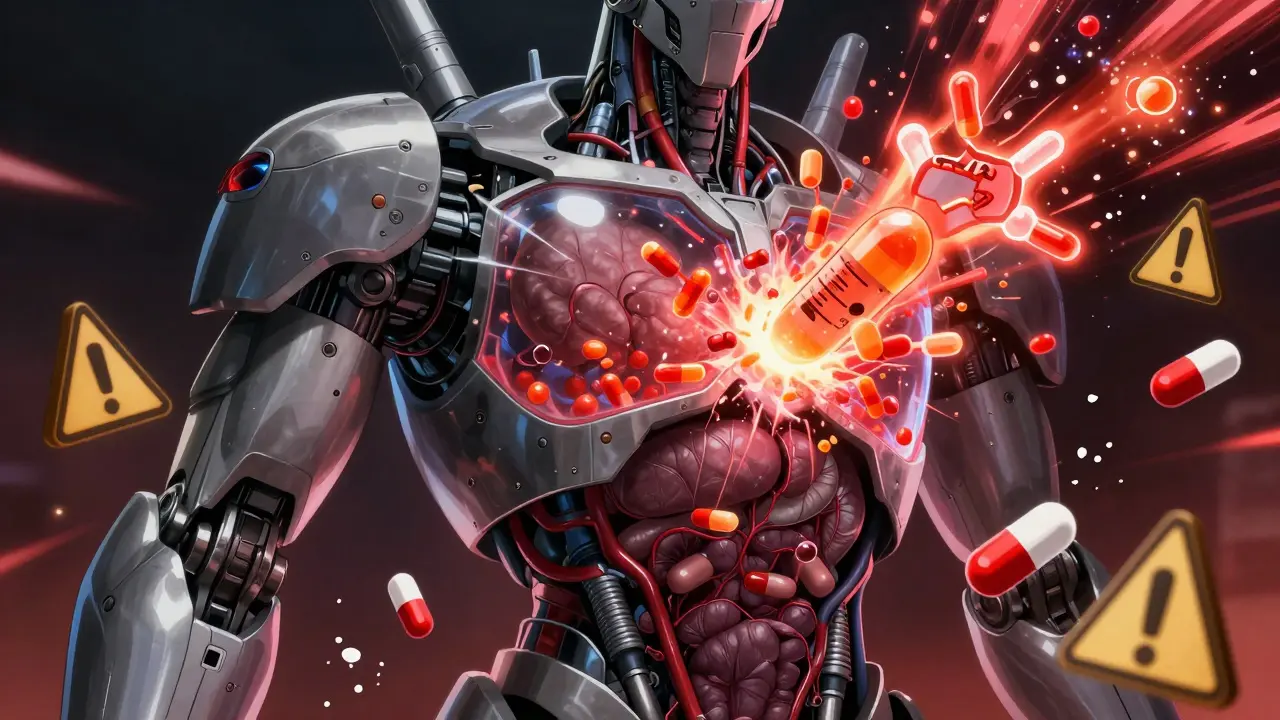Drug Interactions: Spotting Risks and Staying Safe
Mixing medications isn’t just about juggling pills. It’s about understanding how those medicines interact inside your body, and how those combinations can mess with the effectiveness or safety of your treatment. Missed warning signs can mean unexpected side effects, less effective drugs, or even an emergency. That’s why knowing the basics of drug interactions is crucial for anyone taking more than one medication—or even adding supplements or herbal products into the mix.
Ever wondered why your doctor or pharmacist always asks what you're already taking before prescribing something new? It’s because simple drug combinations can have a big impact. Think about mixing a common cold medicine with blood pressure tablets, or layering an antidepressant with migraine meds. Sometimes, one drug can make another stronger or weaker in ways you wouldn’t expect. For example, certain antibiotics can boost the power of blood thinners until it’s dangerous. Even over-the-counter painkillers or natural remedies like St. John’s Wort can play a role.
It’s not just prescription meds you have to watch out for. Vitamins, supplements, and even what you eat can change how your body handles medicine. Grapefruit, for one, isn’t always a harmless breakfast—it can block enzymes that break down drugs in your liver, turning a safe dose into something risky. Alcohol is another sneaky player, often making side effects worse or blunting the good your medicine is meant to do.
Spotting signs of a bad interaction takes some attention. Watch for new or unusual symptoms after starting a new medication—like dizziness, stomach pain, headaches, or mood changes. These aren’t just random complaints; sometimes, they signal that drugs are clashing in your system. If side effects come on strong or fast, it’s worth making a call to your pharmacist or doctor right away.
So, how do you keep yourself safe? First, always keep a list of every medicine, vitamin, or supplement you take, and bring it to every appointment. Don’t assume your doctor has your full pharmacy record. Next, double-check with your pharmacist when you pick up something new and ask, "Could this interact with what I already take?" Most pharmacies use software that flags obvious risks, but nothing replaces an honest chat about your daily routines and habits.
Reading medicine leaflets matters, too. They come with every prescription and include details on common interactions. If you’re confused by technical wording, don’t hesitate to ask for the plain-English version. Online resources, like BMPHARMACY.COM, are also helpful for updated information in simple terms, but always double-check anything you read with a healthcare pro before making a decision.
Drug interactions can sound scary, but with a bit of know-how and some simple questions, you can keep your meds working for you, not against you. Staying honest with your care team—and yourself—about every pill, herbal remedy, or glass of wine counts for more than most people think.
Drug Interactions Discovered Post-Market: What It Means for Your Safety
Many dangerous drug interactions aren't found until after a medication is widely used. Learn how post-market surveillance catches hidden risks, why clinical trials miss them, and what you can do to protect yourself.
How to Read Prescription Labels to Avoid Dangerous Drug Interactions
Learn how to read your prescription label to spot dangerous drug interactions. Know what to look for, how to avoid mistakes, and why apps aren't enough. Your label holds life-saving info - here's how to use it.
Comprehensive Guide to Generic Hytrin: Understanding Its Uses and Implications
This article explores Generic Hytrin, an effective medication for managing hypertension and benign prostatic hyperplasia. By delving into its medical benefits, side effects, and interactions with other drugs, readers gain a comprehensive understanding of how to safely incorporate it into their healthcare regime. Tips for purchasing Generic Hytrin online are also provided, ensuring individuals can access this medication conveniently and securely.


